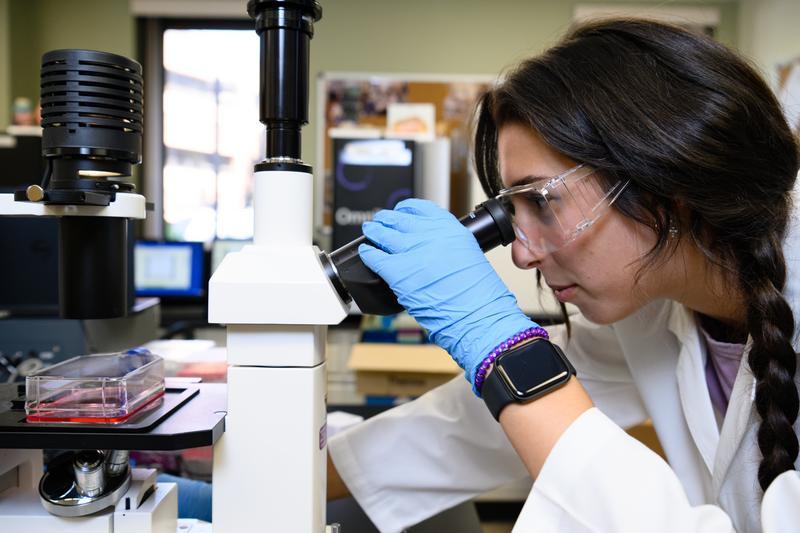Research and Resources
Introduction
Clemson University has a bold goal of doubling research by 2035. Health innovation achieved this milestone over the last 10 years and is poised to repeat this success. With a broad thrust in biomedical science and health innovation our excellence continues to grow in areas such as addiction and mental health, aging, data science, human genetics, human performance, population health, and more.
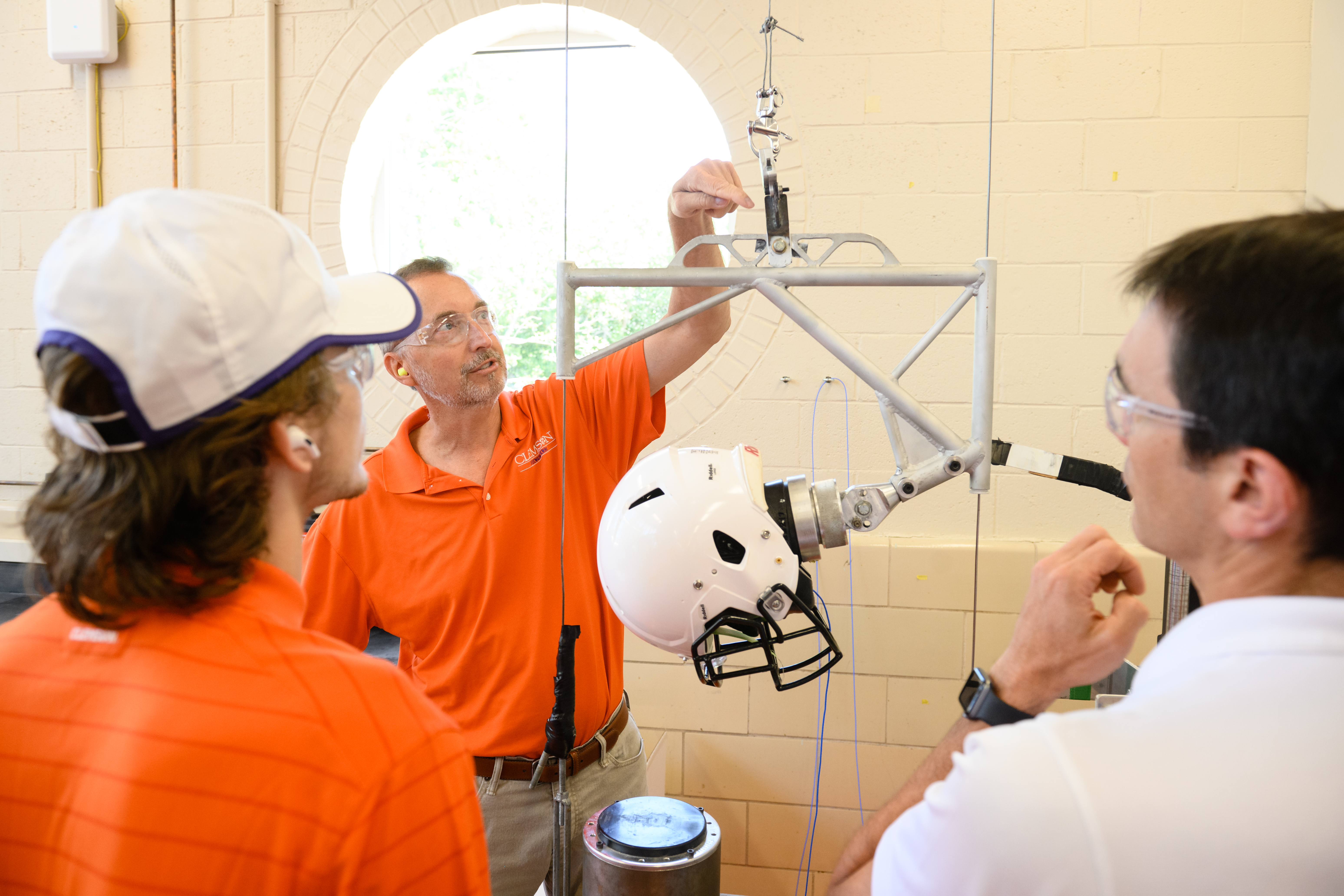
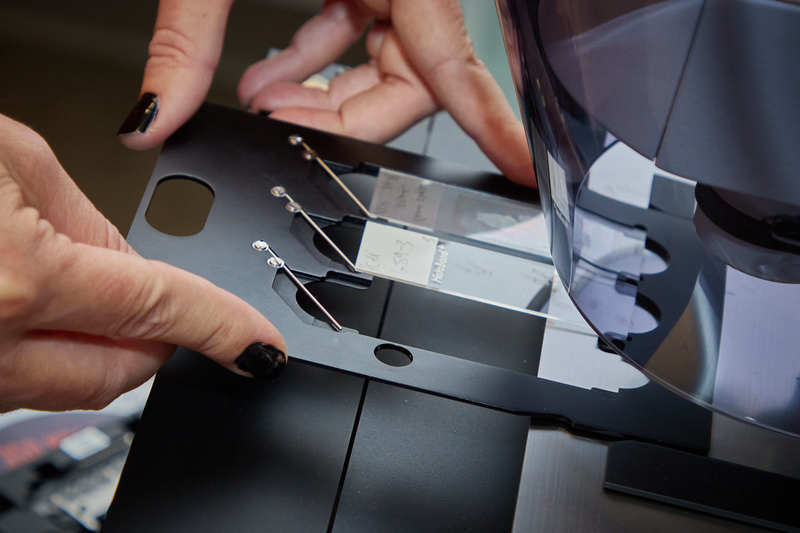
Strategic Units and Campuses
-
Clemson University Biomedical Engineering Innovation Campus (CUBEInC)
CUBEInC is a 30,000-square-foot facility devoted to education and translational research on Prisma Health’s Patewood Hospital campus. The facility was opened in 2011 and is home to numerous health innovation partnerships and initiatives, including biomedical start-up and orthopedic research partnerships between Clemson and Prisma Health.
-
Clemson-MUSC Bioengineering Program
Clemson University and the Medical University of South Carolina established the Clemson-MUSC Bioengineering Program in 2003. Located on the MUSC campus in Charleston, Clemson University faculty and their research personnel maintain full-time laboratories and office space. This joint program provides a clinical setting that offers tremendous opportunities for both faculty and students.
-
Clemson Rural Health
Clemson Rural Health is the organizing framework for Clemson's health service delivery and prevention efforts statewide, bringing cutting-edge programs to underserved communities. The goal of its research and innovation efforts is to transform health outcomes through reducing premature death, decreasing unnecessary hospitalizations and improving quality of life.
Centers and Institutes
-
Centers of Biomedical Research Excellence (COBRE)
Clemson operates four unique COBRE projects funded by the National Institutes of Health – the most a university can have at one time – that collaborate closely with health care providers in the state to advance translational research, including Prisma Health, Greenwood Genetics Center and the Medical University of South Carolina. Each COBRE builds advanced infrastructure and worldclass expertise to tackle healthcare problems around a central theme.
-
Center for Human Genetics
Led by renown geneticist Trudy Mackay, a member of both the National Academy of Medicine and the National Academy of Sciences, the Center for Human Genetics is pioneering research on the genetic networks that – coupled with lifestyle habits and other environmental factors – determine an individual’s susceptibility to cancers, hypertension, high cholesterol, arthritis, diabetes, Alzheimer’s disease and numerous other ailments. The center collaborates closely with Greenwood Genetic Center, which provides clinical services to thousands of patients annually.
-
South Carolina Bioengineering Center for Regeneration and Formation of Tissues (SC BioCRAFT)
Formed in 2009, SC BioCRAFT has become a trusted source for tissue engineering and regenerative medicine innovation with the potential to repair and regenerate diseased tissues, having produced several startup companies, earned numerous patent awards and published hundreds of scholarly articles in peer-reviewed publications.
-
South Carolina Translational Research Improving Musculoskeletal Health (SC TRIMH)
Led by bioengineers at Clemson, SC-TRIMH combines orthopedics and other clinical expertise from Prisma Health and the Medical University of South Carolina with computer scientists, computational engineers, biophysicists and other experts to understand musculoskeletal disorders better and to design and evaluate new devices, interventions and drug therapies.
-
Eukaryotic Pathogens Innovation Center (EPIC)
EPIC researchers are dedicated to unlocking treatments to curb the spread of diseases caused by eukaryotic pathogens. These pathogens, which include parasite, fungi, amoebae, and helminths, are responsible for some of the most severe and challenging diseases affecting humans, such as malaria, amebic dysentery, African sleeping sickness, fungal meningitis, and Chagas disease, among others. The global repercussions of these illnesses are significant. Once thought to be confined to tropical and subtropical regions, these diseases are increasingly spreading to new areas as result of factors like climate change and increased travel.
-
-
School of Nursing Clinical Learning Research Center and Simulation Centers (CLRC)
The School of Nursing is a nationally recognized program which focuses on preparing nurses for professional practice, advanced nursing scholarship, and health care leadership. The program includes training in the Clinical Learning Laboratory (CLL), a nationally recognized interprofessional simulation-based educational environment at both Clemson’s main campus and in Greenville.
-
Center for Addiction and Mental Health Research (CAMHR)
Located in the College of Behavioral, Social and Health Sciences. CAMHR spearheads Clemson research in addiction and mental health, including epidemiology, prevention and intervention. Rigorous research, interdisciplinary collaboration and community engagement inform policies and practices that prevent and reduce the harms of these public health problems.
-
Institute for Engaged Aging at Prisma Health Oconee Medical Center
With research focus on brain, mobility, technology, and health and well-being, IEA researchers are committed to helping older adults retain independence and ability to stay fully engaged in life. With more than 45 faculty affiliates from various disciplines and partnerships with community organizations and agencies, the IEA empowers older adults to remain active and connected within their families and communities.
-
Research and Education in Disease Diagnosis and Intervention Laboratory (REDDI Lab)
The REDDI Lab is home to Clemson University’s first high-complexity Clinical Laboratory Improvement Amendments (CLIA) certified facility. The goal of the CLIA lab is to provide regular, rapid testing of Clemson faculty, staff and students and collaborate with DHEC to expand and facilitate rapid testing availability for the entire Upstate community and other institutions of higher education throughout the State.
-
Center for Health Facilities Design and Testing
The Health Facilities Design and Testing Center is using interdisciplinary design research to improve health care environments through better architecture and building design. Research at this Center focuses on two main areas: how the design of health care facilities affects the delivery of health care and how to create architectural settings that better serve the health and well-being of patients and staff.
-
SHERPA Center at Clemson and the Center for Human Factors in Healthcare at Prisma Health
Clemson and Prisma Health have a bold collaboration to improve patient safety, health system efficiency, patient outcomes, and the overall experience for both patients and health care workers. Clemson's Safety, Health and Ergonomics Research for Performance Augmentation (SHERPA) Center provides the academic expertise to investigate and unravel these complex issues. Prisma Health's Center for Human Factors in Health Care provides clinical and patient perspectives, experiences, and environments. Working closely together, these mutually beneficial Centers can explore and address the challenges related to the human element of medical care, where systems include the clinicians, the work they do and the tools and technologies they use to accomplish tasks.
-
Collaborative Health Facilities
A key enabler of health research is the close proximity that innovation campuses and co-located health facilities offer. The Clemson University Biomedical Engineering Innovation Campus (CUBEInC) is located on the Prisma Health Patewood Medical Campus in the same building with orthopedic surgeons and physical therapists. The Institute for Engaged Aging occupies the 5th floor of the Outpatient wing of Prisma Health Oconee Memorial Hospital, a rural hospital and hub for care in Oconee County South Carolina that has a high proportion of retirees and elderly residents. The Clemson University Nursing building is situated on the Prisma Health Greenville Memorial Medical Campus with inpatient, outpatient, and emergent care for patients of all ages. The Bioengineering Building at the Medical University of South Carolina offers dual programming and is connected to the Department of Orthopedics and the College of Dental Medicine.
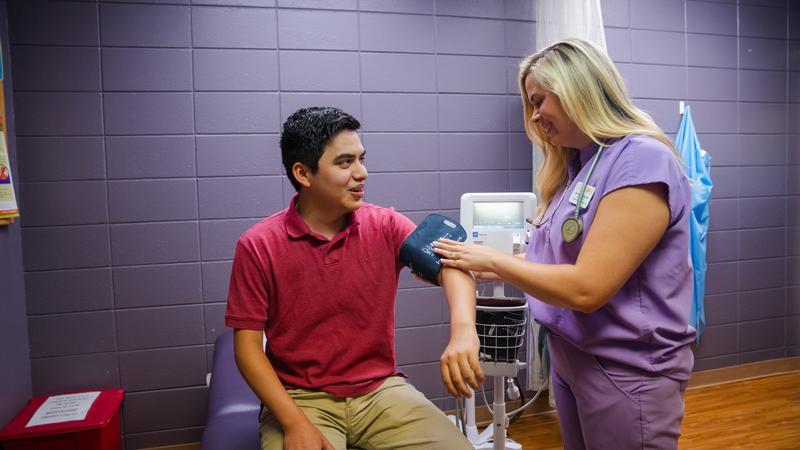
Resources
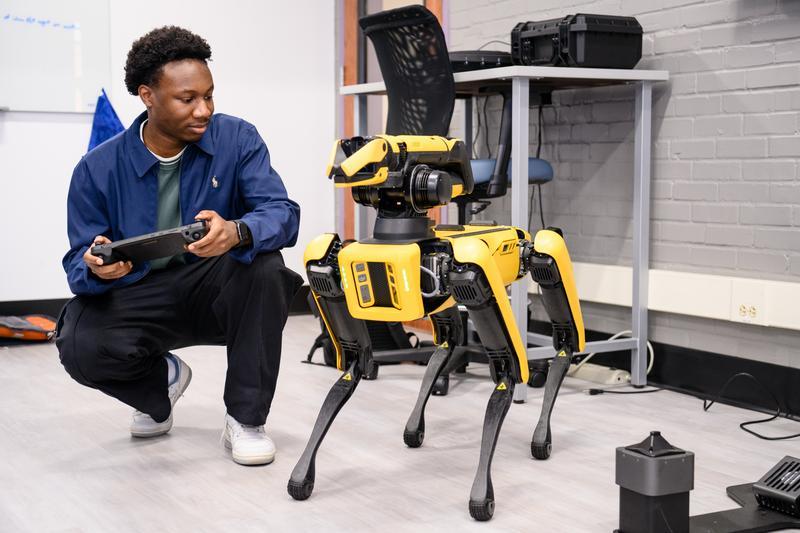
Strategic Initiatives and Projects
-
One Health
The CDC defines One Health as an approach that recognizes that the health of people is closely connected to the health of animals and our shared environment. The Clemson One Health Research Group brings together researchers from different Clemson colleges and facilities, and studies topics of interconnected well-being, disease control, and holistic collaboration. Innovative research with this group seeks optimal health outcomes for individuals, animals, and the environment while also encouraging cross-disciplinary research and conversations. Visit the One Health Research Group website to learn more.
-
Disease Modeling and Analytics
To Inform Outbreak Preparedness, Response, Intervention, Mitigation, and Elimination in South Carolina (DMA-PRIME), the initiative utilizes data-driven approaches to conduct infectious disease forecasting, design decision-support toolkits, and enhance communication methods for public health organizations and decision makers. The project is supported by the Centers for Disease Control and Prevention.
-
Artificial Intelligence – Medical Devices
Artificial Intelligence-Enabled Devices for the Advancement of Personalized and Transformative Health Care in South Carolina (ADAPT-SC) is a statewide initiative led by Clemson to develop innovative medical devices powered by AI. These technologies aim to improve healthcare diagnostics, treatment, and rehabilitation. In collaboration with technical colleges, undergraduate institutions, and the private sector, the project emphasizes workforce development and translational research to benefit patients across South Carolina.
-
Human Factors Engineering Research Investment Initiative
A new initiative from the Clemson University School of Health Research, The Clemson University Research Foundation and Prisma Health, this research project seeks to improve various hospital procedures, such as discharging patients or improving the efficiency of creating staff schedules. This research on how medical professionals work and care for patients is called human factors. This work addresses critical needs for patients and health care providers related to clinical processes, operations, ergonomics, patient safety, provider burnout and job satisfaction.
-
3T Functional Magnetic Imaging (fMRI)
Clemson University in collaboration with Prisma Health installed a 3T functional magnetic imaging (fMRI) machine at Prisma Health Oconee Memorial Hospital. The next-generation, non-invasive scanning technology provides faster, higher quality medical imaging than previously available on the community hospital campus. The new unit will support local clinical diagnostic needs for patients in the Oconee County area and expand research opportunities to study Alzheimer’s disease and related conditions.
-
Clemson-MUSC AI Hub
Clemson and the Medical University of South Carolina joined forces to harness the power of artificial intelligence to improve health care in South Carolina. AI has the power to sift through the billions of chemical and electrical signals in the brain to differentiate a simple blink of an eye from an abnormality that may diagnose neurological diseases like Alzheimer’s, for example. AI can analyze complex medical images to detect early signs of a tumor. Or it could predict a stroke or early onset cancer. These are a few examples of limitless potential, but to put the power of AI to use in health care, research collaborations between AI experts, medical researchers and clinicians are essential. The new Clemson-MUSC AI Hub aims to build those collaborations, invest in promising research projects and equip researchers with the knowledge, tools and experts to apply AI to their work.
-
Extension Center for Health Outreach (ECHO)
ECHO is focused on programming in the areas of chronic disease prevention and self-management, family wellness, and women's health. Under these umbrellas, programs include the Healthy Outcomes Project (HOP), Health Extension for Diabetes (HED), WalkSC, Yoga for Everybody, Know Diabetes by Heart, Stirring Up Healthy Cooking, Mother's Milk Bank of SC, and more. Faculty from CAFLS and CBSHS and Clemson Extension staff partner on health outreach programming throughout South Carolina.
Resources
-
REDCap Access
REDCap is a secure web application for building and managing online surveys and databases. While REDCap can be used to collect virtually any type of data in any environment (including compliance with 21 CFR Part 11, FISMA, HIPAA, and GDPR), it is specifically geared to support online and offline data capture for research studies and operations. The REDCap Consortium, a vast support network of collaborators, is composed of thousands of active institutional partners in over one hundred countries who utilize and support their own individual REDCap systems. Source Link.
Check out the Tip sheet designed to assist Clemson health researchers in using the REDCap system effectively.
-
Core Facilities
Clemson offers core research facilities as well as innovation campus locations that offer new opportunities for faculty to undertake and expand their research. These core research facilities are Aquatic Animal Research Lab, Godley-Snell Research Center, Clemson Light Imaging Facility and Electron Microscopy Facility.
Clemson’s Division of Research operates four core research facilities that offer world-class equipment and highly trained staff. Visit the Division of Research Core Facilities to learn more.
